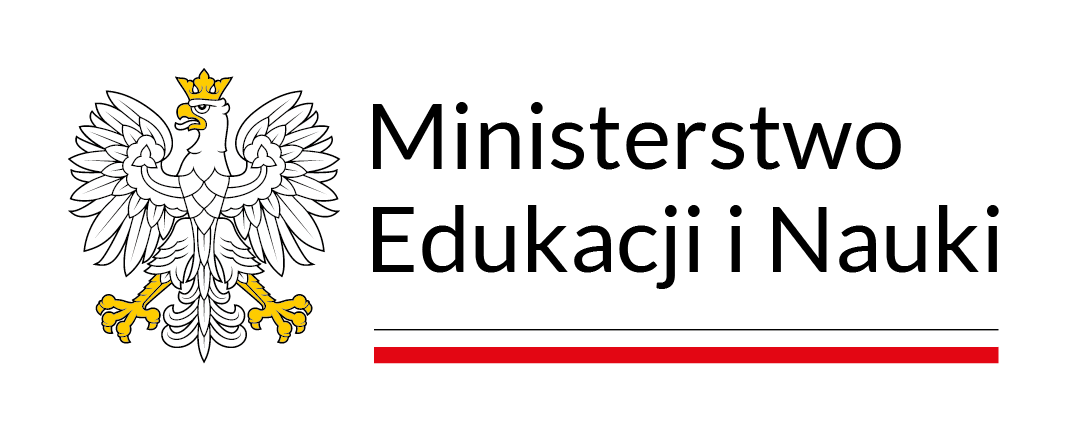New Forms of Communities? The Constitution and Performance of Audiences in Digital Theater during the COVID-19 Pandemic
Abstrakt
Pandemia COVID-19 pogrążyła wiele teatrów na świecie w okresowym kryzysie, równocześnie sprzyjając rozwojowi cyfrowych form teatralnych. Przedmiotem artykułu są zmiany w odbiorze teatru w przestrzeni cyfrowej, a przede wszystkim konieczność odrębnego ukonstytuowania się tam publiczności, rozumianej jako społeczny aspekt przedstawień teatralnych. Analiza performatywna dwóch cyfrowych produkcji teatralnych z Niemiec, Homecoming i Sterben, jest podstawą refleksji nad znaczeniem infrastruktury cyfrowej dla możliwych form gromadzenia się, doświadczeń i działań tego rodzaju publiczności teatralnej. Autor bada, jak publiczność może tworzyć różne tymczasowe wspólnoty w przestrzeni cyfrowej. Wspólnoty te odznaczają się hybrydycznością i umożliwiają intensywne spotkania teatralne pomimo fizycznego dystansu.
Instytucje finansujące
Słowa kluczowe:
publiczność, pandemia, teatr niemiecki, wspólnota, odbiór, sztuki performatywne, cyfrowość, hybrydyzacjaBibliografia
Bennett, Susan. Theatre Audiences: A Theory of Production and Reception. London: Routledge, 1994.
Google Scholar
Brandl-Risi, Bettina. “Genuss Und Kritik: Partizipieren Im Theaterpublikum.” In Vom Publicum: Das Öffentliche in Der Kunst, edited by Dietmar Kammerer, 73–90. Bielefeld: transcript Verlag, 2014.
DOI: https://doi.org/10.14361/transcript.9783839416730-005
Google Scholar
Fischer-Lichte, Erika. “Aufführung.” In Fischer-Lichte et al., Metzler Lexikon Theatertheorie, 15–26.
Google Scholar
Fischer-Lichte, Erika, Doris Kolesch, and Matthias Warstat, eds. Metzler Lexikon Theatertheorie. Stuttgart: Verlag J.B. Metzler, 2014. http://dx.doi.org/10.1007/978-3-476-05357-2.
DOI: https://doi.org/10.1007/978-3-476-05357-2
Google Scholar
Freshwater, Helen. Theatre & Audience. London: Palgrave Macmillan, 2009.
DOI: https://doi.org/10.1007/978-0-230-36460-8
Google Scholar
Glogner-Pilz, Patrick, and Patrick S. Föhl, eds. Handbuch Kulturpublikum: Forschungsfragen und -befunde. Wiesbaden: Springer VS, 2016.
DOI: https://doi.org/10.1007/978-3-531-18995-6
Google Scholar
Hadley, Bree. Theatre, Social Media, and Meaning Making. Cham: Palgrave Macmillan, 2017.
DOI: https://doi.org/10.1007/978-3-319-54882-1
Google Scholar
Heim, Caroline. Audience as Performer: The Changing Role of Theatre Audiences in the Twenty-First Century. New York: Routledge, 2015.
DOI: https://doi.org/10.4324/9781315757568
Google Scholar
Hermann, Max. “Das theatralische Raumerlebnis.” In Zeitschrift für Ästhetik und allgemeine Kunstwissenschaft: 4.Kongress-Bericht 25 (1931): 152–163.
Google Scholar
Kolesch, Doris. “Immersion and Spectatorship at the Interface of Theatre, Media Tech and Daily Life: An Introduction.” In Staging Spectators in Immersive Performances, edited by Doris Kolesch, Theresa Schütz, and Sophie Nikoleit, 1–17. New York: Routledge, 2019.
DOI: https://doi.org/10.4324/9780429198274-1
Google Scholar
Kolesch, Doris, and Hubert Knoblauch. “Audience Emotions.” In Affective Societies: Key Concepts, edited by Jan Slaby and Christian von Scheve, 252–263. London: Routledge, 2019.
DOI: https://doi.org/10.4324/9781351039260-22
Google Scholar
Lonergan, Patrick. Theatre and Social Media. London: Palgrave Macmillan, 2016.
DOI: https://doi.org/10.1007/978-1-137-46371-5
Google Scholar
Roselt, Jens. “Gemeinschaft/Kollektivität.” In Fischer-Lichte et al., Metzler Lexikon Theatertheorie, 128–131.
Google Scholar
Sauter, Wilmar. “Publikum.” In Fischer-Lichte et al., Metzler Lexikon Theatertheorie, 273–279.
Google Scholar
Sedgman, Kirsty. The Reasonable Audience: Theatre Etiquette, Behaviour Policing, and the Live Performance Experience. Cham: Springer International Publishing, 2018. https://doi.org/10.1007/978-3-319-99166-5.
DOI: https://doi.org/10.1007/978-3-319-99166-5
Google Scholar
Sullivan, Erin. “Live to Your Living Room: Streamed Theatre, Audience Experience, and the Globe’s A Midsummer Night’s Dream.” Participations: Journal of Audience & Receptions Studies, 17, no. 1 (2020): 92–119.
Google Scholar
Turner, Victor. “Liminalität und Communitas.” In Ritualtheorien: Ein einführendes Handbuch, edited by Andréa Belliger and David J. Krieger, 251–261. Wiesbaden: VS Verlag für Sozialwissenschaften, 1998.
DOI: https://doi.org/10.1007/978-3-322-95615-6_13
Google Scholar
Wagner, Elke. Intimisierte Öffentlichkeiten: Pöbeleien, Shitstorms und Emotionen auf Facebook. Bielefeld: transcript, 2019. http://www.transcript-verlag.de/978-3-8376-4026-7.
DOI: https://doi.org/10.14361/9783839440261
Google Scholar
Warstat, Matthias. “Liminalität.” In Fischer-Lichte et al., Metzler Lexikon Theatertheorie, 197–199.
DOI: https://doi.org/10.1007/978-3-476-05357-2_11
Google Scholar
Autorzy
Kai Padbergkai.padberg@fu-berlin.de
Freie Universität Berlin Niemcy
W latach 2010–2015 studiował teatrologię, medioznawstwo i socjologię na studiach licencjackich na Friedrich-Alexander-Universität Erlangen-Nürnberg. W 2019 obronił pracę magisterską o protestach publiczności na teatrologii na Freie Universität w Berlinie. Stypendysta Hans-Böckler-Stiftung. Od października 2019 pracuje w projekcie badawczym “Extended Audiences: Audience Performances and Public in Transition” w ramach Cluster of Excellence Temporal Communities na Freie Universität Berlin. Jest doktorantem w Friedrich Schlegel Graduiertenschule für literaturwissenschaftliche Studien na Freie Universität w Berlinie.
Statystyki
Abstract views: 1005PDF downloads: 952
Licencja
Prawa autorskie (c) 2021 Kai Padberg

Utwór dostępny jest na licencji Creative Commons Uznanie autorstwa – Użycie niekomercyjne – Bez utworów zależnych 4.0 Międzynarodowe.
Autor/ka udziela niewyłącznej i nieodpłatnej licencji (CC BY 4.0) na wykorzystanie tekstu w "Pamiętniku Teatralnym", zachowuje nieograniczone prawa autorskie, ale zobowiązuje się do podawania miejsca pierwodruku przy ponownym wykorzystaniu artykułu (umowa licencyjna do pobrania). Zgłaszając artykuł do publikacji, autor/ka wyraża zgodę na jego udostępnianie na licencji CC BY 4.0.
Od zeszytu 1/2018 do zeszytu 3/2022 artykuły publikowane były na licencji CC BY-NC-ND 4.0. W tym okresie autorzy/ki udzielali niewyłącznej i nieodpłatnej licencji (CC BY-ND 4.0) na wykorzystanie tekstu w "Pamiętniku Teatralnym", zachowywali nieograniczone prawa autorskie, ale zobowiązywali się do podawania miejsca pierwodruku przy ponownym wykorzystaniu artykułu.









